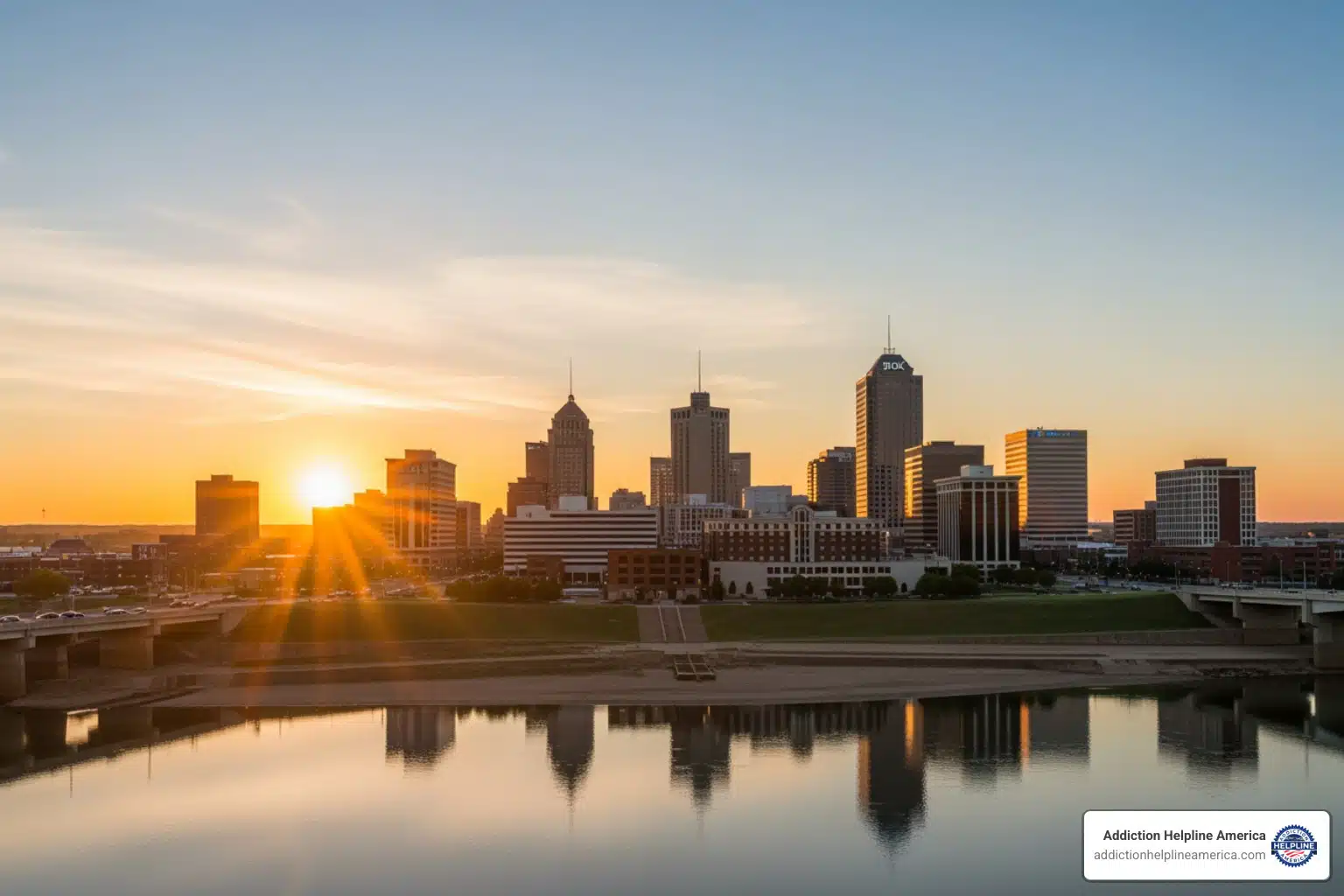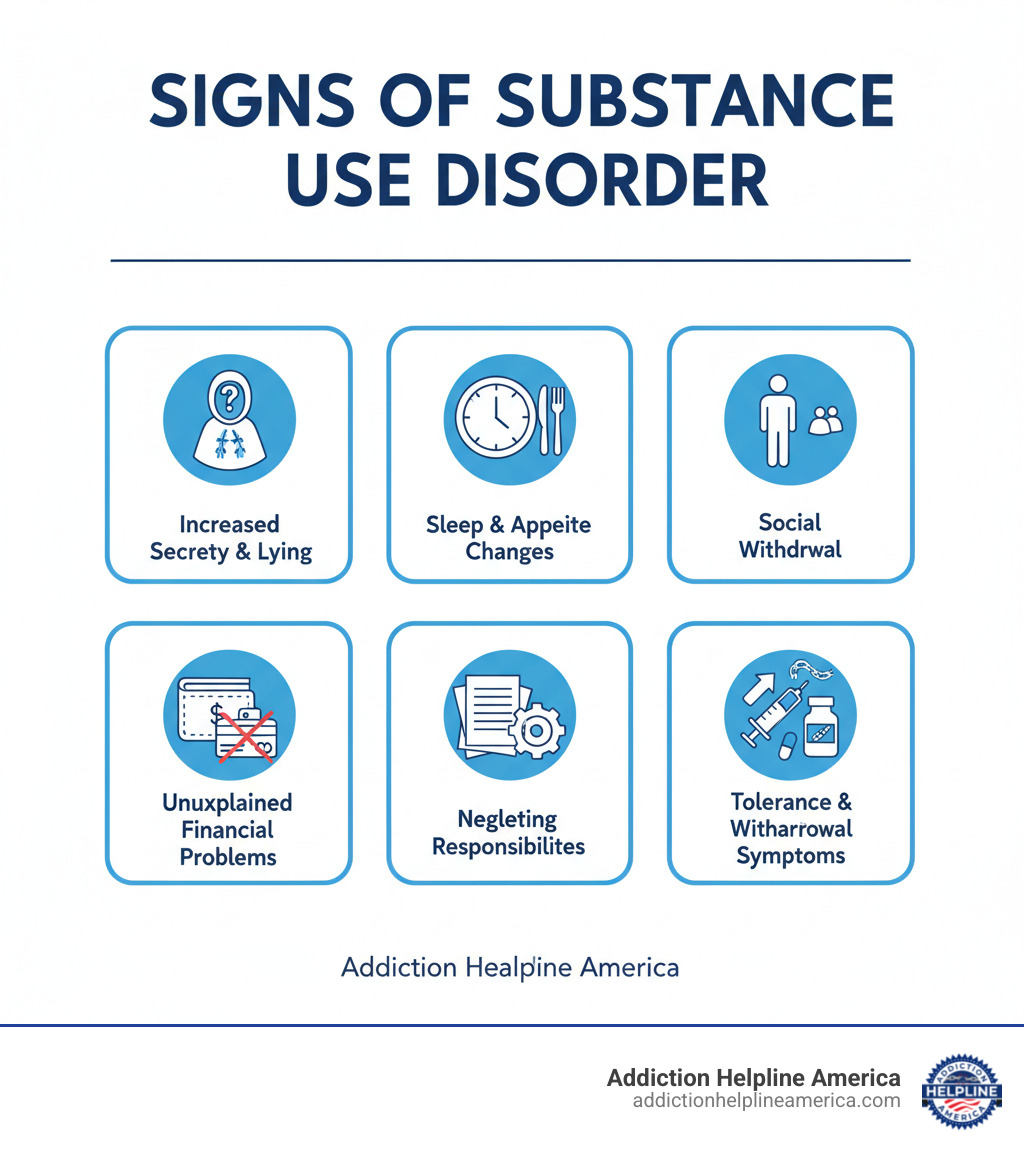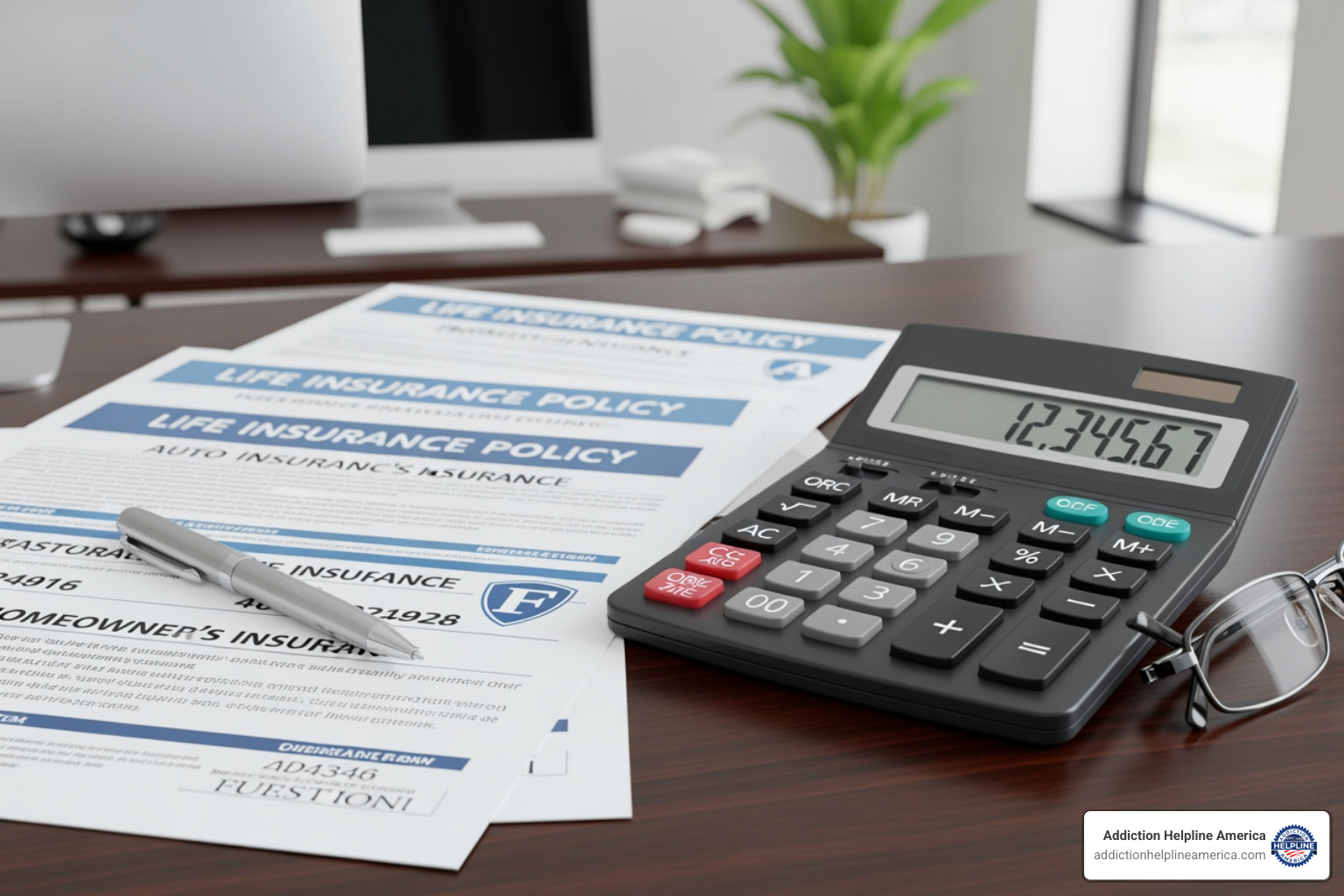
Finding Hope in Tulsa: Understanding Your Local Drug Rehab Options
Tulsa drug rehab centers provide a lifeline for individuals and families facing substance use challenges. Here’s a brief overview of the local landscape:
- 37 addiction treatment facilities are available in and around Tulsa.
- 19 programs accept Medicaid, expanding access to care.
- Treatment options include medical detox, residential, outpatient, and dual diagnosis services.
- No-cost programs are available for those with financial barriers.
- The average treatment cost in Tulsa is $52,085, which is below state and national averages.
The need for these services is urgent. Oklahoma saw a 418% increase in drug overdoses in 2022, and Tulsa County has one of the highest overdose hospitalization rates in the nation. Opiates are a primary driver, but prescription medications also contribute significantly. The crisis affects all, with women more likely to be hospitalized and men more likely to die from an overdose.
This guide will help you find effective, compassionate care by exploring Tulsa’s top rehab facilities, explaining treatment types, and outlining how to afford the help you need. Understanding your options is the first step toward recovery.
At Addiction Helpline America, we connect people with treatment resources nationwide, including Tulsa drug rehab programs custom to individual needs. We know the local landscape and can help you steer it with confidence.
The State of Addiction in Tulsa: Statistics and Trends
Addiction has reached crisis levels in Tulsa. In 2019, Tulsa County had the seventh-highest overdose hospitalization rate in the country, with nearly 5,000 Oklahomans hospitalized annually due to drug abuse. Oklahomans are now more likely to die from an overdose than from a firearm.
Opiates are a major factor, leading to one in five overdose hospitalizations in the county. However, prescription anxiety medications also play a significant role, accounting for 15% of these incidents. The data also reveals key gender disparities: women are 50% more likely to be hospitalized for drug-related emergencies, while men are twice as likely to die from an overdose. These statistics highlight the need for custom Tulsa drug rehab services.
In response, the community conversation has shifted from punishment toward treatment, with experts emphasizing that addiction is often rooted in pain and trauma. The solution lies in expanding access to treatment centers and mental health resources.
Oklahoma’s legal framework is evolving to support this approach. Key legislation includes:
- Mental Health Parity Laws: These require insurers to cover mental health and substance abuse treatment on par with physical health conditions, making care more affordable.
- The Good Samaritan Overdose Prevention Law: This law protects individuals who call for help during an overdose from certain legal repercussions, encouraging life-saving action.
- Opiate Prescription Regulation Bills: Measures like HB 1446 aim to curb fraudulent prescriptions and prevent opioid overdose deaths at the source.
Understanding this challenging landscape is the first step toward an effective response, which is precisely what Tulsa’s treatment community is working to provide.
Understanding Your Options: Types of Rehab Programs Available
Recovery is not one-size-fits-all, which is why a variety of treatment options exist. These programs form a “continuum of care,” guiding you from initial detox to long-term wellness. Understanding what each type of program offers can help you find the right fit for your recovery journey.
Medically Supervised Detoxification
Detox is often the first step, where the body clears itself of substances. Withdrawal can be uncomfortable and, depending on the substance, dangerous to attempt alone. Medically supervised detoxification provides a safe environment where healthcare professionals monitor you 24/7. They can administer medications to ease withdrawal symptoms and manage any complications, stabilizing your body so you can begin the therapeutic work of recovery. Most Tulsa drug rehab centers offer detox or partner with facilities that do.
Inpatient/Residential Treatment
Following detox, many enter inpatient or residential treatment, living at a facility for 28 days to several months. This option provides a complete break from triggers and a chaotic home environment. It offers total immersion in recovery through a structured, supportive setting with 24/7 care. Days consist of individual and group therapy, educational workshops, and holistic activities. This intensive model is ideal for building a strong foundation in early sobriety.
Outpatient Programs (PHP/IOP)
For those who cannot leave work or family obligations, outpatient programs offer a flexible yet effective alternative.
- Partial Hospitalization Programs (PHP) are the most intensive, requiring several hours of therapy at the facility on most days of the week, while you return home at night.
- Intensive Outpatient Programs (IOP) are less time-intensive, typically involving nine to twelve hours of therapy per week, allowing more flexibility for daily life.
Many programs, like Valley Hope of Tulsa, specialize in these models and may offer telehealth options for even greater accessibility.
Dual Diagnosis Treatment
Addiction and mental health conditions like depression, anxiety, or trauma often co-exist. This is known as a dual diagnosis or co-occurring disorder. Effective treatment must address both issues simultaneously. Integrated dual diagnosis treatment involves a coordinated team of psychiatrists, therapists, and addiction counselors. Facilities like Laureate Psychiatric Clinic and Hospital specialize in this comprehensive, psychiatrist-led care, treating the whole person, not just the addiction.
Long-Term Recovery Support
Recovery is a lifelong process that extends beyond primary treatment. Aftercare services, such as alumni programs and ongoing counseling, provide a crucial bridge to independent living. Sober living homes offer a structured, substance-free environment for those needing a transitional step. Community support groups like Alcoholics Anonymous (AA) and Narcotics Anonymous (NA) offer invaluable peer support. Finally, relapse prevention strategies learned in treatment become the daily tools for maintaining long-term sobriety.
A Closer Look: Top 5 Tulsa Rehab Centers
Finding the right Tulsa drug rehab is a personal decision. Consider what matters most to you: insurance acceptance, treatment philosophy, or specialized services for co-occurring disorders. Our goal at Addiction Helpline America is to help you find the program that fits your unique needs. We’ve highlighted five outstanding facilities to begin your search.
GRAND Addiction Recovery Center: A Full Continuum of Care
GRAND Mental Health offers a holistic approach, addressing not just addiction but also physical health, housing, and employment. Deeply integrated into the Tulsa community through partnerships with schools and healthcare systems, GRAND provides a robust safety net. Their merger with 12&12, Inc. expanded their ability to offer a full continuum of care, including medical detox, residential treatment, and outpatient programs. They also provide 24/7 crisis services, youth and adult programs, and Medication-Assisted Treatment (MAT).
Listen to the podcast We Don’t Talk About That.
Best for: Individuals seeking comprehensive, integrated services with strong community connections.
Valley Hope of Tulsa: Flexible Outpatient Treatment
Valley Hope of Tulsa understands that life doesn’t stop for recovery. Their outpatient focus allows clients to receive expert treatment while maintaining work and family responsibilities. They offer Intensive Outpatient Programs (IOP) and telehealth services for maximum flexibility. The program emphasizes evidence-based therapies, family support, and relapse prevention strategies, all within a compassionate and accessible environment.
Drug & Alcohol Rehab Center in Tulsa – Valley Hope
Best for: Those needing to balance recovery with daily responsibilities through a strong outpatient program.
H.O.W. Foundation: No-Cost Residential Program for Men
The H.O.W. (Honest, Open-Minded, Willing) Foundation removes financial barriers with its no-cost residential program for men. The program is built on the Twelve Steps and a strong work ethic, demanding genuine commitment. A unique feature is that all staff members are program alumni, offering peer support from a place of true understanding. The foundation helps men rebuild their lives by teaching life skills and fostering a sense of purpose.
Best for: Men seeking a structured, long-term residential program without financial constraints.
Laureate Psychiatric Clinic and Hospital: Specialized Dual Diagnosis Care
For those with complex co-occurring mental health conditions, Laureate provides a hospital-based approach to addiction treatment. Their care teams are led by psychiatrists, ensuring the highest level of medical and psychiatric oversight. Treatment is typically brief, active, and focused on stabilization. Services begin with medically supervised detoxification and move to an inpatient program offering personalized treatment plans, therapy, and an introduction to the Twelve-Step model. Laureate excels at treating intertwined addiction and mental health disorders.
Best for: Individuals with severe addiction and co-occurring mental health disorders requiring intensive medical and psychiatric care.
Palmer Tulsa: A Focus on Women and Children
Palmer Tulsa’s mission is to restore hope and heal families, with specialized programs for women, including mothers who can bring their children to treatment. They provide a supportive, trauma-informed environment that addresses the unique challenges women face, such as trauma, domestic violence, and fear of losing custody. Their services span medical detox, inpatient treatment, and outpatient care, with family therapy integrated throughout. By allowing mothers to keep their children close, Palmer Tulsa removes a significant barrier to treatment.
Best for: Women, especially mothers, seeking a trauma-informed environment that addresses their unique needs.
Paying for Your Tulsa Drug Rehab Program
The cost of treatment should never be a barrier to recovery. There are many options to make Tulsa drug rehab affordable and accessible.
Average Costs in Tulsa
The average cost of treatment in Tulsa is approximately $52,085, which is lower than both the Oklahoma state average ($54,475) and the national average ($57,193). However, your actual cost will vary based on several factors. Medically supervised detox and inpatient residential programs are typically more expensive due to 24/7 care, housing, and meals. Outpatient programs (IOP/PHP) are more affordable as they don’t include room and board. Program duration and specialized services like Medication-Assisted Treatment (MAT) also influence the final price.
Insurance Coverage
Thanks to the Mental Health Parity and Addiction Equity Act, most insurance plans must cover substance abuse treatment.
- Private Health Insurance: Most Tulsa drug rehab facilities accept major providers like Blue Cross Blue Shield, Aetna, Cigna, UnitedHealth Group, and Humana.
- Medicaid (SoonerCare): In Tulsa, 19 rehab programs accept Medicaid, making treatment accessible for low-income individuals.
- Medicare: Numerous facilities also accept Medicare for those 65 and older or with qualifying disabilities.
- Other Insurance: Select facilities accept TRICARE for veterans, state insurance, and funding from Indian Health Service programs.
The most important step is to verify your specific benefits. Addiction Helpline America can help you verify your insurance coverage for Tulsa drug rehab programs, clarifying your deductibles, co-pays, and out-of-pocket costs.
Affordable Options
If you lack insurance or your coverage is insufficient, several other pathways exist:
- Sliding Scale Fees: Many facilities adjust their costs based on your income.
- State-Funded Programs: State grants and funding support low-cost or free treatment at certain centers.
- No-Cost Rehab: Programs like the H.O.W. Foundation offer free residential treatment for men. We have also compiled other free resources.
Free Drug Rehabs in Tulsa, OK - Scholarships and Payment Plans: Some programs offer scholarships funded by grants, while many will work with you to create a manageable payment plan.
Your financial situation does not have to prevent you from getting help. We can help you explore every option to find a program that fits your needs and budget.
Frequently Asked Questions about Addiction Treatment in Tulsa
When considering treatment, many questions arise. Here are answers to some of the most common ones we hear about Tulsa drug rehab programs.
What are the signs that someone needs a Tulsa drug rehab program?
Addiction often reveals itself through a pattern of changes. Key signs that professional help is needed include:
- Behavioral Changes: Increased secrecy, lying, irritability, defensiveness, or unexplained mood swings.
- Physical Signs: Sudden weight changes, poor hygiene, bloodshot eyes, changes in sleep patterns, or visible marks like track marks or nosebleeds.
- Social Withdrawal: Losing interest in hobbies and pulling away from friends and family in favor of new, questionable connections.
- Financial Problems: Unexplained money issues, unpaid bills, or missing valuables.
- Neglecting Responsibilities: Poor performance at work or school, and failure to manage home or family duties.
- Tolerance and Withdrawal: Needing more of the substance to get the same effect (tolerance) and experiencing physical or psychological distress when trying to stop (withdrawal).
How important is family support during addiction recovery?
Family support is critical. Addiction is often called a “family disease” because it impacts everyone, and healing together leads to the strongest outcomes. A supportive family provides emotional encouragement and accountability. Many Tulsa drug rehab centers, like Valley Hope of Tulsa, offer family therapy to mend relationships, improve communication, and educate loved ones on how to provide healthy support. A family committed to recovery helps create a safe, sober home environment, which is vital for a smooth transition after treatment.
Are there specialized Tulsa drug rehab programs for veterans or LGBTQ+ individuals?
Yes, and specialized care is crucial for lasting recovery. Generic programs may not address the unique challenges certain populations face.
- Veterans often deal with combat trauma, PTSD, and difficulties transitioning to civilian life. Veteran-specific programs, like those at the Ernest Childers VA Outpatient Clinic, offer trauma-informed care in a culture that understands military experience.
- LGBTQ+ individuals face challenges such as discrimination, family rejection, and internalized shame, which contribute to higher rates of substance use. LGBTQ+ affirming programs provide a safe, non-judgmental space to heal with therapists trained in the specific mental health needs of the community.
Asking a potential treatment center about their experience with these populations is an important step. At Addiction Helpline America, we can connect you with a Tulsa drug rehab that understands and supports your whole self.
Conclusion: Your Path to Recovery in Tulsa Starts Today
The statistics on addiction in Tulsa are serious, but there is a clear and accessible path to recovery. You do not have to face this journey alone.
This guide has shown the diverse landscape of Tulsa drug rehab resources. From medically supervised detox and residential care to flexible outpatient programs, help is available. We’ve highlighted top facilities like GRAND, Palmer Tulsa, Valley Hope, H.O.W. Foundation, and Laureate, each offering unique strengths. With numerous facilities accepting Medicaid and other affordable options, financial concerns should not be a barrier to treatment.
Reaching out for help is a sign of strength, not weakness. It is the first and most important step toward a new life.
At Addiction Helpline America, we provide free, confidential guidance to connect you with a Tulsa drug rehab program that fits your unique needs, budget, and goals. Our team is available 24/7 to answer questions, verify insurance, and explore all your options. We have deep knowledge of the treatment centers in Tulsa and across the country and are ready to match you with the right resources.
Your path to a healthier, sober life starts now. Let us walk alongside you.
Our helpline is 100%
free & confidential
If you or someone you care about is struggling with drug or alcohol addiction, we can help you explore your recovery options. Don’t face this challenge alone—seek support from us.
Programs
Resources
Will my insurance
cover addiction
treatment?
We're ready to help
Find the best
drug or alcohol treatment
center
Are you or a loved one struggling with addiction? Call today to speak to a treatment expert.
















